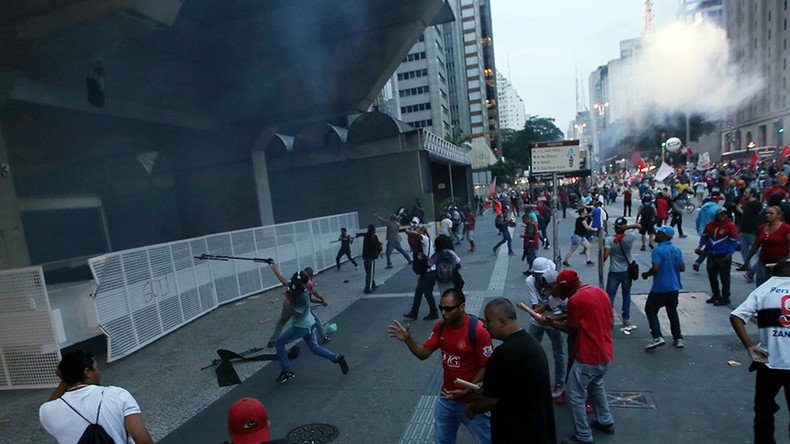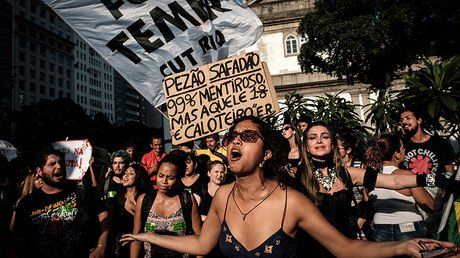Shock therapy: Brazilian constitutional amendment to freeze education, health spending for 20yrs

A new constitutional amendment has gone into effect in Brazil which is set to freeze government spending on things like healthcare, education, pensions, infrastructure, and defense until 2037.
The amendment has a clause which says the freeze can be revised in a decade, but that would require a 60 percent majority in parliament, which could prove next to impossible for Brazil’s fractious legislative system.
The spending cap can only increase with the inflation rate, and will not depend on economic or population growth, while education spending per child will drop by over 30 percent, and healthcare funding per patient will be reduced by 10 percent, according to Paulo Zahluth Bastos, an economics professor at the University of Campinas, as quoted by Vox.
At the same time, Temer has pledged to introduce a stimulus package to appease the outrage: the government will write off some of the taxes owed by companies, as well as letting others pay off their debts in installments. The authorities are also set to make sure banks and credit card companies reduce the time they take to process payments, or lower the fees they charge businesses.
The stimulus package announcement comes a few days after the latest round of violent clashes erupted in the streets of Brazil, with military police cracking down on hundreds of protesters. The majority of the protesters were reported to be civil servants, many of whom have not been paid for months.
Recession has been gnawing at Brazil for a couple of years now, and severe austerity measures were first introduced by Brazilian President Michel Temer back in May, after he stepped in for the ousted leader Dilma Rousseff.
Rousseff was impeached due to a major corruption and bribery scandal involving the Brazilian state-owned oil giant Petrobras.
It has been quite difficult, however, for Temer to win the public’s trust. In November, about 50 anti-Temer protesters disrupted a session of the National Congress, while in Rio, thousands took to the streets and clashed with police outside the local Legislative Assembly.
Last month, 75-year-old Temer was himself embroiled in a corruption scandal, after a former minister in his cabinet claimed that the current president used pressure to help a top political ally in a property deal.
Temer’s party members also seem to be on thin ice, adding to the outrage. Renan Calheiros, the head of the Senate, is also facing claims of corruption, including a case in which he allegedly let a lobbyist for a construction company pay child support for the politician’s son from an extramarital affair.
Meanwhile, impeached president Rousseff urged the authorities to hold an early election, branding Temer ‘a traitor’ and ‘illegitimate’ while speaking to AlJazeera on Thursday.














